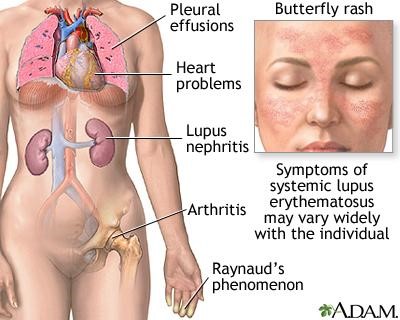A woman hospitalized with severe preeclampsia is being treated with hydralazine to control blood pressure. Which finding would lead the nurse to suspect that the client is having an adverse effect associated with this drug?
Gastrointestinal bleeding
Sweating
Tachycardia
Blurred vision
The Correct Answer is C
Choice A Reason: This is incorrect because gastrointestinal bleeding is not an adverse effect of hydralazine, which is a vasodilator that lowers blood pressure by relaxing the smooth muscles of the blood vessels. Gastrointestinal bleeding can be caused by other conditions such as ulcers, gastritis, or hemorrhoids.
Choice B Reason: This is incorrect because sweating is not an adverse effect of hydralazine, but a normal response to vasodilation and heat loss. Sweating can also be caused by other factors such as fever, anxiety, or exercise.
Choice C Reason: This is correct because tachycardia is an adverse effect of hydralazine, which can occur as a reflex response to vasodilation and hypotension. Tachycardia can increase the cardiac workload and oxygen demand, which can be harmful for pregnant women with preeclampsia who already have impaired placental perfusion and fetal hypoxia.
Choice D Reason: This is incorrect because blurred vision is not an adverse effect of hydralazine, but a symptom of severe preeclampsia that indicates cerebral edema or ischemia. Blurred vision can also be caused by other conditions such as diabetes, glaucoma, or cataracts.
Nursing Test Bank
Naxlex Comprehensive Predictor Exams
Related Questions
Correct Answer is A
Explanation
Choice A Reason: This is correct because this response provides realistic and supportive advice for a woman who wants to have a baby with lupus. Lupus is an autoimmune disease that causes inflammation and damage to various organs and tissues. Lupus can affect fertility and pregnancy outcomes, such as increasing the risk of miscarriage, preterm delivery, preeclampsia, or neonatal lupus. Therefore, it is important for the woman to have her lupus under control before conceiving and to consult with her doctor about her treatment plan and prenatal care.
Choice B Reason: This is incorrect because this response is discouraging and insensitive for the woman who wants to have a baby with lupus. Lupus does not necessarily prevent a woman from having a healthy pregnancy and a healthy baby, as long as she follows her doctor's recommendations and monitors her condition closely. The nurse should respect the woman's reproductive choices and provide information and support.
Choice C Reason: This is incorrect because this response is inaccurate and misleading for the woman who wants to have a baby with lupus. Lupus can have various effects on pregnancy, such as causing flares or complications that can affect both the mother and the baby. The nurse should educate the woman about the possible risks and benefits of pregnancy with lupus and help her prepare for any challenges.
Choice D Reason: This is incorrect because this response is vague and alarming for the woman who wants to have a baby with lupus. Lupus treatment may or may not change during pregnancy, depending on the type and severity of lupus, the medications used, and the stage of pregnancy. The nurse should explain the rationale and safety of any medication changes and address any concerns or questions that the woman may have.

Correct Answer is ["A","B","D"]
Explanation
Choice A Reason: This is correct because breast tenderness is a common discomfort during the first trimester of pregnancy. It is caused by hormonal changes that stimulate breast growth and prepare them for lactation. Breast tenderness may also be accompanied by swelling, tingling, or sensitivity.
Choice B Reason: This is correct because urinary frequency is a common discomfort during the first trimester of pregnancy. It is caused by hormonal changes that increase blood flow to the kidneys and bladder, as well as by the growing uterus that puts pressure on the bladder. Urinary frequency may also be associated with increased thirst or urinary tract infections.
Choice C Reason: This is incorrect because backache is not a common discomfort during the first trimester of pregnancy. It usually occurs in later stages of pregnancy, when the weight of the fetus and the uterus shifts the center of gravity and strains the back muscles and ligaments. Backache may also be caused by poor posture, stress, or fatigue.
Choice D Reason: This is correct because cravings are a common discomfort during the first trimester of pregnancy. They are caused by hormonal changes that affect the sense of taste and smell, as well as by emotional or psychological factors. Cravings may vary from person to person and may include foods that are sweet, salty, sour, or spicy.
Choice E Reason: This is incorrect because leg cramps are not a common discomfort during the first trimester of pregnancy. They usually occur in later stages of pregnancy, when there is increased pressure on the nerves and blood vessels that supply the legs. Leg cramps may also be caused by dehydration, electrolyte imbalance, or muscle fatigue.
Whether you are a student looking to ace your exams or a practicing nurse seeking to enhance your expertise , our nursing education contents will empower you with the confidence and competence to make a difference in the lives of patients and become a respected leader in the healthcare field.
Visit Naxlex, invest in your future and unlock endless possibilities with our unparalleled nursing education contents today
Report Wrong Answer on the Current Question
Do you disagree with the answer? If yes, what is your expected answer? Explain.
Kindly be descriptive with the issue you are facing.
